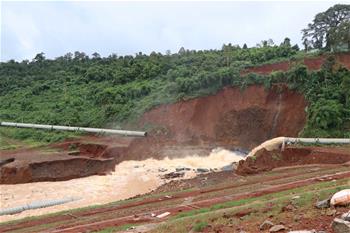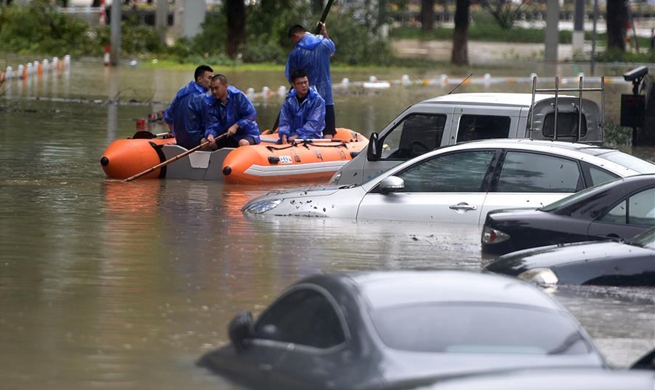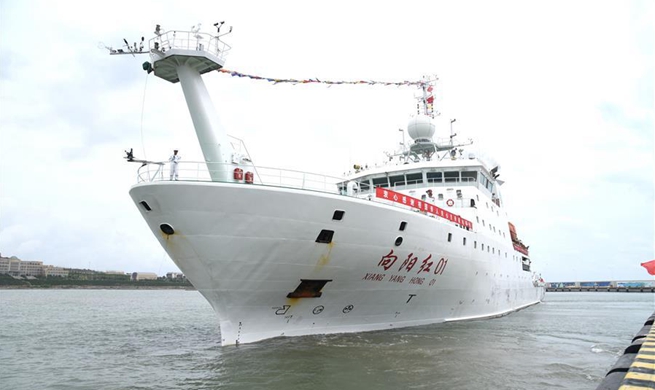ROME, Aug.10 (Xinhua) -- Silvio Berlusconi, Italy's 82-year-old billionaire media tycoon and former prime minister, is seeking one more political comeback with a plan that -- if it works -- could launch him back into the national spotlight amid the fractured political landscape.
Berlusconi was the dominant political force in Italy between 1994, at the start of his first stint of the prime minister, and 2011, at the end of his last stint. Since then he has been dogged by legal scandals and dramatic erosion of support for Forza Italia, the political party he founded.
Forza Italia once commanded more than 30 percent of the electorate in Italy. But that number slipped to 14 percent in last year's general election, a weak fourth among political parties, to just 9 percent in elections for European Parliament earlier this year. Most opinion polls since then place support for Berlusconi's party at between 6 and 8 percent of the electorate.
In most opinion polls, the nationalist, anti-migrant League remains the country's most popular political party, with support of between 35 and 39 percent of voters, with at least three other parties ahead of Berlusconi and his allies.
But that European Parliament vote was noteworthy in that it represented a return to politics for Berlusconi, who was elected to a seat in the European legislature.
Now, Berlusconi has announced plans to form a new federation called "L'Altra Italia" (Italian for "The Other Italy"), which Berlusconi describes as a "federation of civil society, center-right political forces, and associations opposed to the political left and the Five-Star Movement."
The populist Five-Star Movement is partnered with the League in support of Giuseppe Conte as prime minister. But the two parties are in constant conflict over an array of issues including major infrastructure projects like the high-speed train line linking Turin, Italy to Lyon in France; policies toward migrant arrivals from Africa and the Middle East; tax and monetary policy; and the relations with the European Union.
It is not clear if L'Altra Italia would throw its weight behind the League or try to stake out its own territory.
But according to Riccardo Puglisi, a professor of political economy with the University of Pavia, it remains unlikely the new entity would earn enough votes to have a major impact.
"Support for Berlusconi is fading quickly," Puglisi told Xinhua. "I think it's too late for Berlusconi to be a relevant political figure. I think he will diminish his legacy for him to insist on being part of the political process instead of playing the role of an 'elderly statesman' or 'noble father.'"
Fabio De Nardis, a professor of political sociology at the University of Salento, agreed, doubting whether L'Altra Italia can rebuild a significant base of support.
"When Berlusconi first got into politics he was a political innovator and he changed the political landscape in Italy," De Nardis said in an interview. "He is no longer an innovator but he doesn't want to admit it."













